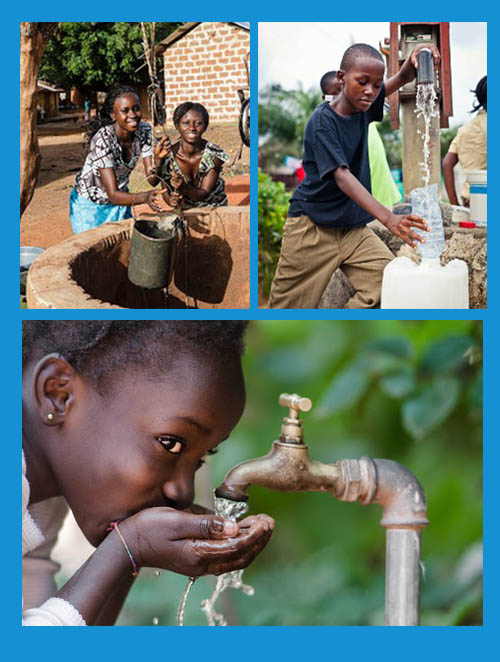What We Do
Our Initiatives
International Basic Aid was founded with the aim to develop and facilitate meaningful and sustainable development thorough underserve arears in developing countries.

Food Aid
Many countries around the world are at the brink of famine. In 2017, for example, a famine was declared in South Sudan which lasted several months. Countries like Yemen, Somalia and Nigeria that have been wrecked by civil war are also at the brink of starvation. This is a human crisis of catastrophic proportion. At International Basic Aid, we focus on fighting hunger by helping people on the brink of famine access the nutrients they need to survive. We are committed to distributing food to vast populations around the world and availing digital cash cards to help combat the problem of food insecurity.
In 2019, we aim to provide food assistance to 8 million people facing starvation, secure nutrition support to treat malnutrition and related complications, and assist pregnant and breastfeeding mothers with specialized nutrition. We aim to raise $1 billion to combat the issue of food insecurity in countries such as Somalia and South Sudan.
Clean Water and Sanitation
Clean water is a luxury to many people around the world. Contaminated water and poor sanitation are leading causes of sickness in impoverished nations. Many people have to walk several miles to access limited amounts of clean water. This consequently results in poor sanitation, which can trigger the spread of deadly diseases such as typhoid and cholera. We desperately want to bring clean water and proper sanitation to people around the world. By drilling bore wells in water and sanitation-deficient areas, we can help fill this gap while paving the way for improved overall health.
Our main focus is to provide safe water to the millions of families around the world affected by constant drought and underdevelopment. We will drill wells within communities and make safe water available for everyone to use. We are targeting over 100 well projects this year in more than 10 countries around the world.



Emergency Response (Food, Clothing and Shelter)
The need for a systematic mitigation and prevention of disaster is an increasing concern for many response agencies. In 2017 alone, the overall losses arising from worldwide catastrophes totaled $330 billion. At International Basic Aid, we are dedicated to reaching out to communities and countries struck by catastrophes ranging from hurricanes and tornadoes to wars, fires and terrorism.
We will respond to these emergencies with food, shelter and clothing for the families and communities affected. We have put together a list of ‘focus countries’ (Haiti, Syria, Yemen, Ethiopia, Nigeria, Sudan and South Sudan) that are likely to experience catastrophes. We have worked out a logistics plan that will make it possible for these countries to get help that truly matches their needs. In the spirit of humanity, our organization will join hands with other relief efforts to provide the much-needed food and clothing whenever catastrophe strikes.
Women Empowerment
Around the world, women are facing grave challenges.
- Over 62 million girls are denied education
- 200 million women and girls have been killed as a result of ‘gendercide’
- 1 in 3 women will experience gender-based violence in her lifetime.
In some eastern communities, girls are married off before the age of 15, with some child brides being as young as 9 and 10 years old. Each year, 287,000 women die from pregnancy related conditions, 99 percent of whom are from impoverished countries. While women contribute 40% to the agricultural labor workforce, only 3-20% own land. In Africa, women-owned enterprises make up as little as 10% of all existing businesses while in South Asia, only 3% of women own businesses.

Investing in women empowerment can transform human potential in a tremendous way. In any given economy, women make up one half of the potential human capital. According to reports by the World Bank, more than half a billion women have joined the workforce in the last three decades. Countries that prioritize gender equality are more prosperous and competitive. One extra year in high school can change the course of a woman’s life. Girls with a secondary education are less likely to marry young compared to girls with little or no education. Countries that invest in women have lower rates of maternal death and more access to technology and proper healthcare. We stand steadfast in our belief that women must have equal access to opportunities, control of markets, land ownership and resources as their male counterparts. We are committed to supporting and protecting the rights of women and girls around the world. Besides empowering them financially and giving them a chance to access education, we are advocating for policy changes that will give women and girls the right to own land, have the power to make their own decisions and get an education.




 by
by